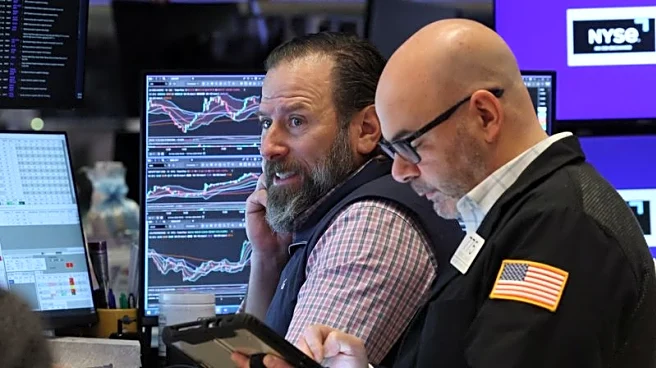What is the story about?
What's Happening?
President Trump issued an executive order condemning flag-burning as 'uniquely offensive and provocative,' directing federal officials to prosecute flag-burners whenever possible. This move comes despite the Supreme Court's rulings in 1989 and 1990 that outlawing flag-burning violates the First Amendment. The order aims to use content-neutral laws to prosecute flag-burners, but it may inadvertently provide a legal defense for those charged, as it could be seen as selective prosecution. The order has already led to a protest where a combat veteran burned a flag in front of the White House, resulting in charges under a rule prohibiting burning in Lafayette Park.
Why It's Important?
The executive order highlights ongoing tensions between free speech rights and patriotic symbolism in the U.S. While intended to curb flag-burning, the order may actually make prosecutions more difficult by providing defendants with evidence of selective enforcement. This could impact how free speech is protected under the First Amendment, potentially leading to more flag-burning incidents as acts of protest. The order's implications for legal proceedings could affect how similar cases are handled in the future, influencing public policy and civil rights discourse.
What's Next?
The order invites Attorney General Pam Bondi to pursue litigation to clarify First Amendment exceptions related to flag-burning. However, any prosecution under this order is likely to face significant legal challenges, given the Supreme Court's established stance on flag-burning as protected speech. The controversy may lead to increased public demonstrations and legal debates over the balance between national symbols and free expression. Stakeholders, including civil rights groups and legal experts, are expected to closely monitor developments and potentially challenge the order's constitutionality.
Beyond the Headlines
The executive order raises questions about the ethical and cultural dimensions of patriotism and dissent. It underscores the symbolic power of the flag and the complexities of legislating against acts perceived as unpatriotic. The order may also reflect broader political strategies aimed at rallying support among certain voter demographics by emphasizing national unity and traditional values. Long-term, this could influence cultural attitudes towards protest and the role of government in regulating symbolic speech.
















